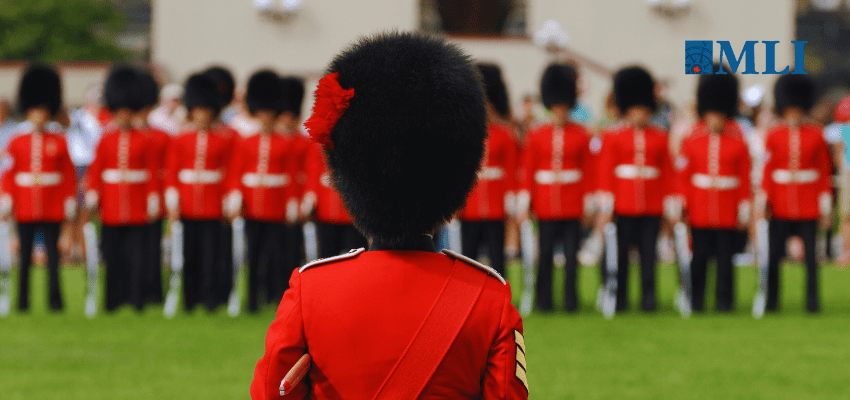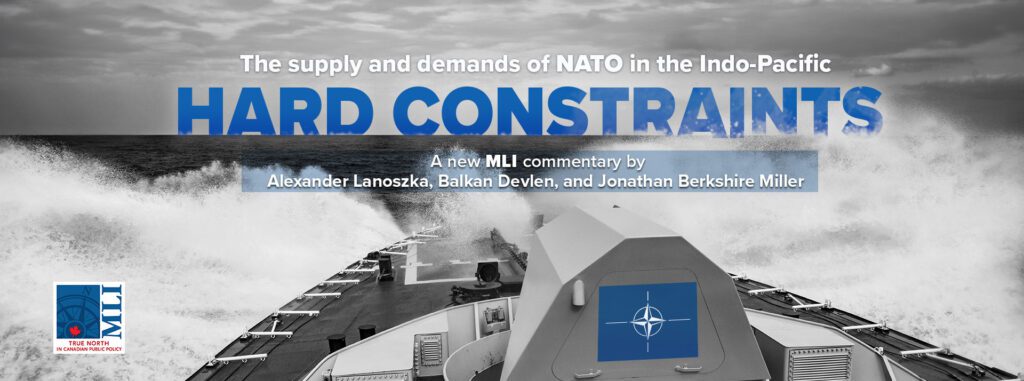This article originally appeared in the National Post.
By Tony Abbott, August 9, 2024
When Australia, Britain and the United States recently came together in a trilateral defence and security agreement, there was one conspicuous absentee: Canada, the country that had had the world’s third-largest navy and fourth-largest air force at the end of the Second World War; and which, as a Five Eyes and NATO partner, could normally be expected to participate in any big security arrangement within the Anglosphere. Canada’s absence was especially striking given that the AUKUS agreement was about ending “foreign country” defence procurement distinctions as well as about providing Australia with nuclear-powered submarines. Despite being the world’s 10th largest economy, right now, with just 1.37 per cent of GDP currently spent on defence, Canada is a mere 27th in terms of “global firepower.”
So as a military and geopolitical lightweight, it seems that it never occurred to the AUKUS partners to invite Canada to participate. It’s a far cry from the not-so-distant past when Canada was the principal combatant on one of the five D-Day beaches, a big contributor to the British Commonwealth Division in Korea and an early and substantial part of the NATO effort in Afghanistan. How is it that with such a strong history of military integration into the Anglosphere, Canada has become an outsider?
Almost certainly, a key factor in its exclusion from AUKUS has been Canada’s consistent failure to meet the NATO defence spending target of two per cent of national GDP. Canada is one of only eight NATO countries that’s still shirking its military obligations. Although not strictly a NATO member, Australia has (just) passed the NATO target and aims to reach 2.4 per cent within a decade. The failure of Canada to meet NATO defence spending requirements is now a sore point in its relations with the U.S. In May, a bipartisan group of 23 U.S. senators wrote to Prime Minister Justin Trudeau singling out Canada as a country that did not appear to have a plan to hit the NATO target. Even the country’s business establishment is concerned, with a June Business Council of Canada letter imploring the PM: “As you travel home from the emotional ceremonies commemorating the 80th Anniversary of the D-Day landings, it is our hope you are returning to Canada with a renewed appreciation for the vital role the Canadian Armed Forces play in safeguarding both our national sovereignty and the collective security of our international allies.”
Part of Canada’s military indolence is just the general democratic preference for butter over guns and the West’s persistent habit of free-riding on the U.S. as the world’s policeman. And part is Canada’s unique ability to shelter geographically behind the Americans. In this respect, Canada is the North American equivalent of New Zealand: also a prodigious contributor to two world wars, but which, in more recent times, has similarly assumed that any invader would first have to fight its way past a stronger neighbour. Four decades back, despite being a fellow Five Eyes member, New Zealand banned U.S. nuclear ship visits and disbanded its small force of fast jets. It currently has three of its nine navy vessels confined to port because of personnel shortages. And its new right-of-centre government has actually cut defence spending further, to under one per cent of GDP, in a bid to get public finances under control.
But a big part of Canada’s military languor is less Kiwi-style geographic serendipity than historical amnesia. Canada has largely forgotten its historic place as an important part of the Anglosphere that’s been so vital to the wider world’s security and prosperity. The four divisions that Canada sent to the Great War were amongst the best troops of the British Empire. With the Australians, the Canadians were a key part of the Battle of Amiens, the “black day of the German army,” which set up the ultimate Allied victory. Then, in the Second World War, fully 10 per cent of Canada’s total population was in uniform. Canadians were the first allied troops to re-enter Europe in the Dieppe raid as well as being a big part of D-Day and beyond. This didn’t happen because of a direct threat to the Canadian homeland, but because earlier generations of Canadians appreciated that their freedom and their way of life depended on the liberty and security of the wider world; in particular upon the survival and ultimate flourishing of Canada’s democratic allies.
Like the U.S., if it had really wanted to, Canada might once have been able largely to seal itself off against a hostile world. But Canadians collectively declined to opt out of the world’s struggles when that option was more readily available. And any form of national or hemispheric survivalism would be much harder now, in the era of social media, intercontinental travel and weapons of mass destruction. Given the renewed challenge the free world now faces from dictatorships on the march — militarist Russia, Islamist Iran and communist China — Canada, too, will have to lift its game if deterrence-through-strength is to endure. For all the Americans’ mistakes, the Pax Americana, until recently, had made the world more free, more rich, more fair and more safe for more people than at any time in human history.
Yet for decades, Canada has punched below its weight; in more recent times, it has largely opted out of any serious military commitments — in Vietnam and Iraq, for instance. And, despite a strong initial contribution, Canada was an early quitter from the Afghanistan war even though the campaign objectives were essentially humanitarian, aiming to bring a feudal society into the 21st century. It wasn’t about oil; had no benefits for the “military-industrial complex”; and was an attempt (however implausible) to give Afghans something of the freedom and fairness that Canadians take for granted. At least as conceived, if not always as practised, it was the quintessential “moral war” that a well-intentioned country could have pursued. Looking back, it’s hardly surprising that the scuttle from Kabul presaged the new world disorder that’s now so ominous.
Regardless of who wins the presidency, Americans will be less willing than ever to regard being the world’s policeman as their manifest destiny. Without more help from the wider Anglosphere, the U.S. could easily retreat into a new and ultimately disastrous isolationism. Will Canada step up in these times with so many echoes of the late 1930s? Appearing in the Canadian House of Commons in the winter of 1941, Winston Churchill eulogized Canada’s place in the English-speaking world. “Canada occupies a unique position in the British Empire because of its unbreakable ties with Britain and its ever-growing friendship and intimate association with the United States.” That’s no less true today. Canada does not need to create new allies; it just needs to recognize and strengthen the relationships that have long served the freedom of the wider world.
It’s worth noting that in an effort to bolster recruitment, Australia will now accept transferring military personnel from New Zealand, Britain, Canada and the U.S. The value of Canada’s armed forces, while under-appreciated by its current government, is still acknowledged by its cultural allies.
Tony Abbott was prime minister of Australia from 2013-2015 and is a visiting fellow of the Macdonald-Laurier Institute.







